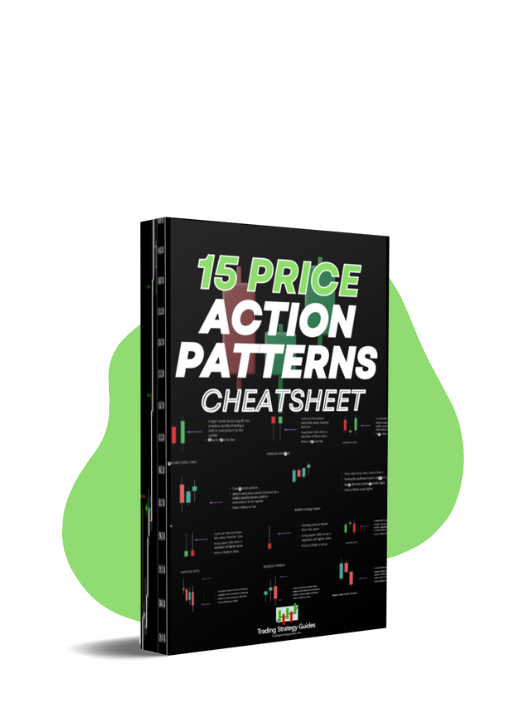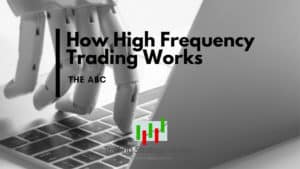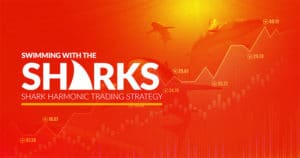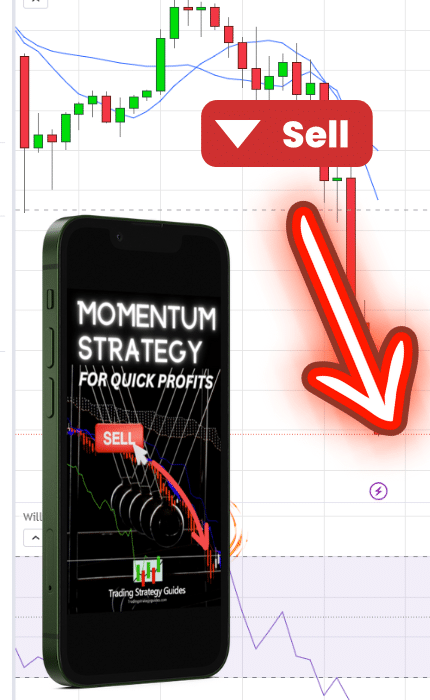Why Over Diversifying Is Not Improving Your Market Gains | Cashflow Hacking Ep #4 Karl Kaufman
Why Over Diversifying Is Not Improving Your Wealth | Cashflow Hacking Ep #4 Karl Kaufman
Karl Kaufman, co-founder of American Dream Investing, joins us on the podcast to discuss the dangers of over-diversification, and how American Dream Investing is helping investors to surpass the retirement goals in record time. As a family-owned business, American Dream Investing has helped their clients to surpass the returns of the S&P 500, and has achieved returns in excess of 340.88% over the last 10 years.
Be sure to follow Karl on his website, and learn what American Dream Investing can do for you!
www.americandreaminvesting.com
Podcast Transcript
Intro: 00:11
This is the Trading Strategy Guides How to Trade It podcast, streaming to you live, exposing the methods behind unlocking wealth, your host Casey Stubbs
Casey Stubbs: 00:23
This is Casey Stubbs with the How to Trade it Podcast from Trading Strategy Guides, and today we’re with Karl Kaufman from American dream investing. It’s a family-owned investment news and pick service. He’s also a contributor with Forbes. Thank you so much for being on the show, Karl.
Karl Kaufman: 00:44
A pleasure to be here. Thanks for having me.
Casey Stubbs: 00:47
So just to get started, could you give me a little bit of background about yourself and how you got started with your own business?
Karl Kaufman: 00:55
Sure. I graduated from Cornell and a 2003. I was pretty lousy business environment there in terms of finding a job, but I was able to get something with Reuters as a market data analysts in their index calculations team and so we would calculate the investment p 500, the Russell 2000. All these big major index is a. We were responsible for doing that. I did that for five years and then I went off on my own. I started a marketing consultant firm and was a freelance writer for a little bit, but I really wanted to start a business with my dad. It was always a dream of ours to work together and I had been helping him with research analysis for his own portfolio and over the years he was not a Wall Street guy at all. He worked as a scientist and engineer for a major Food Corp, but he was able to hack the market if you will, and he retired early and was able to triple his net worth during retirement, like doubling the sep over the last 10 years.
Karl Kaufman: 02:10
So I said, this is too great to hold on to yourself because friends and family would be calling him up all the time saying, what are you investing in? What are you w, what’s what’s your stock picked for the for this week or month or year? And he would share it with friends and family, but I thought this needed to really be shared with the world and with the Internet and text messaging services. We’re able to do that with this innovative service that I called American dream investing. He’s really the American dream. And in a nutshell, he was born into poverty basically in Brooklyn. His father died when he was eight years old and uh, he was the first member of his family to go to college, so he had the cards in the deck stacked against him from an early age, but his story is one that can only be told in America. He met my mom and was successful for 30 years as a scientist and now he’s living a luxury lifestyle and retirement loving life. It’s really an American story. So I thought, let’s share this with as many people as we can. Um, our service sends out text message and email alerts to our members whenever we make a trade in our own portfolio.
Casey Stubbs: 03:31
OK, well that’s, uh, an actually really cool story. I can really relate to that because I have a lot of positive role models. Also my, both my grandparents are really big role model sin. My Dad as a role model and my dad is how I got involved in investing also. So it’s pretty cool. Uh, not everyone is fortunate to have such great positive influence in their life from their family. So I consider myself really blessed and fortunate, uh, to be able to have that kind of a relationship in my life. So when you said that, uh, he wasn’t a traditional Wall Street guide, did you mean that he had, was when you said that, did you mean in that because he was a scientist or because he wasn’t doing traditional stock picks?
Karl Kaufman: 04:20
No. Yeah, he was, um, he was completely self taught. He would go to the library and go read value line before the Internet and he was, was the typical individual retail investor, if you will. And he always had a diy do it yourself attitude. So that’s part of also what the business is about. We’re educating people on the importance of managing their own investments. So I’m blogging whether with Forbes.com or on my own site, about the importance of managing your own portfolio either alone by herself or with the help of a trusted financial advisor.
Casey Stubbs: 05:01
I see. OK. So what was his big secret? If you’re allowed to give that away to, to tripling the s and p 500,
Karl Kaufman: 05:11
right? Well, there’s no big secret. Uh, it’s something that, that people can do with enough time and determination. I mean, we’ve tracked the market every day. We watch the charts, we see what’s going on in the news. Uh, the way that he had the market is to have a defensive portfolio that doesn’t align with conventional wisdom. So what do I mean by that is most people will say you have to diversify your portfolio, you have to be in emerging markets, you have to own the entire market with an s and p index fund. So on and so forth. My father’s portfolio is heavily concentrated in three stocks and he didn’t have 15 to 18 other stocks depending on the environments or what we think of different sectors, but we have three stocks that were the better big time members of our portfolio. Not an example of over diversification mutual funds. Because as an individual investor, you can only really concentrate on so many stocks at a time. I mean, you can only research or, or follow several, you know, 15 to 20 stocks maximum. So that’s really one of the big secrets, if you will.
Casey Stubbs: 06:35
OK. So then if I’m understanding this correctly, it’s an advantage to diversify less and try to find some really good winners and you can put more of your money in one spot and get a greater return that way.
Karl Kaufman: 06:55
Yeah. People will ask, uh, you know, why do you have just those three stocks? Uh, they kind of work in tandem with each other and we, we found that by buying small amounts at a time, either buying or selling within the stock themselves were actively managing our portfolio. And we have these outsize returns. Last year, 2017 was a fantastic year for the s and p. It was up, uh, I think over 21 percent and our portfolio was up 28 percent, over 28 percent over the last 10 years. My Dad has averaged close to 16 percent a year over a 10 year span. So we’re in it for the long-term, uh, you know, the market goes up and down each day, especially these last few months have been extremely volatile, but we’re not really concerned about volatility because we have our eye on the future, the long game. And that’s really how you can get wealthy that way.
Casey Stubbs: 08:02
If you’re looking at the three stocks that you think are gonna be moving, that you’re putting your investment in, do you change those three from time to time or you pick them and you hang onto them. Like how do you reevaluate your portfolio? How does that work?
Karl Kaufman: 08:19
You always have to be reevaluating your portfolio. Uh, you know, given, given our current political climate, especially with the president tweeting every morning, it seems like about certain companies or industries, you never know what effect that could have a. We actually bought some Amazon stock right after trump’s tweets over the last few days because we thought it was overblown. The market will overreact to all kinds of information is very sensitive to, you know, even this morning, you know, the s p futures were tremendously based on the trade war with China that we are supposedly getting into, but that information was already priced in I thought. And so we bought some more this morning, uh, and you know, the market roundup recovering a little bit. So if there’s a correction or over diversification definition a large crash because you’re thinking ahead to the long game, you’re not overly concerned about those. How do you respond to specific crashes and corrections?
Karl Kaufman: 09:25
We look at them as buying opportunities and a lot of the stocks in our portfolio or dividends, socks. So you protect your downside in a way by having these dividends because you just, you’re generating cash flow that you talked about a cashflow hack. I mean you have dividends bringing, bringing in constant income regardless of what market conditions are. Our stocks that are in our portfolio are the so-called dividend aristocrats and that they continually increase their dividend over time. And as you know, if the stock price falls, the yield on the dividend goes up. So your yield is going up even more and you don’t lose money on your stock until you sell it. Right. So if you’re just willing to hold on to it, if you’re not looking to, you know, look, if you’re, if you’re retiring in six months and you have a market crash and you know that’s going to be bad, that he can’t really do anything about excessive diversification. If you need that money right away. Right.
Casey Stubbs: 10:30
But you haven’t got income coming in. Even if you are retiring, you can still hang on to the stock as long as you don’t need to take it all out. Because I know from, from my grandparents experienced, he retired around 2000. He’s still alive. So it’s been a while and he’s been just been crushing it in his retirement. His performance in his retirement has been way better than when he was actually working. Yeah. The people I go talk to, a lot of them, their biggest, the biggest fear is running out of money or outliving their retirement savings. And one of the ways that you can counterbalance that is by not going super conservative by not just investing in bonds that are done, that are not going to outpace inflation, but by having a portfolio of income producing stocks through the dividends that still have some growth potential.
Karl Kaufman: 11:29
And that’s where my dad’s philosophy is and that’s my philosophy as well. And that’s how we’ve been able to be so successful looking at managing someone’s finances and trying to create some extra revenue. What would you say the best thing for the average individual investor to do? Uh, to take advantage of some of the great opportunities that are around out there? Well, my dad’s philosophy or his motto, if you will, is no one loves your money more than you, right? You can, uh, you can give your money over to a total stranger has a finite financial advisor or financial planner. And you don’t know if they’re making a commission off of their money. They don’t know. You don’t know how they’re making money off of your money. And so don’t get me wrong. Financial advisors play a huge role in are very important, especially if you don’t know what you’re doing.
Karl Kaufman: 12:20
Uh, my advice is to educate yourself as much as possible a more people, people spend more time price shopping on Amazon to save three or $4 over what they could buy a walmart, let’s say, but they’re not willing to put the time into managing their own investments and the information is available. But that’s one of my, my missions and one of the American dream investings missions is to educate people on why it’s so important. And so I’ve gone to University of Central Florida has not passed Boston College. I’ve talked to a lot of the college students in the business school there because it’s important for people to start young, uh, you know, compound interest will help you grow your portfolio over time and just need to just need to have the information available to you. So that’s, that’s strike one. That’s, that’s good. The next thing is to take advantage of it.
Karl Kaufman: 13:22
A lot of it is free. A lot of it is, is very inexpensive and it’s something that’s, you know, you talked about healthy, wealthy and wise, you need, you need to be a two or three of those to do well in that area of your life. I think that’s pretty important. That model that he said that nobody loves your money more than yourself.
Casey Stubbs: 14:00
Yeah, that’s pretty good. The problem with that though is that a lot of ordinary people get very intimidated with money management. They get intimidated with the stock market. They think that it’s for these really smart guys that they just couldn’t do it on their own. So what would you say to someone like that that is looking at it and just feels overwhelmed? Yeah. Well a lot of people are overwhelmed by it. That’s a very good point. Uh, I would, I would suggest starting out with some paper trading accounts, you know, play with some fake money.
Karl Kaufman: 14:21
I think Yahoo might allow you to do that. I know there are other services to prieto in the water first with paper trading and see how that goes. The next step would be maybe start off small portfolio with money that you don’t mind losing. Uh, you know, psychologists say that the fear of losing money is twice as over diversification in business strong as the thrill of gaining money, so you have to get that, that first experience of making some bad trains are some money in an investment. Once you get that, that experience, then you might want to consider starting off with a bigger portfolio. And one of the Nice things about our service is that W, we do a lot of the hard work for people. We’re watching ceos on CNBC, we’re listening to conference calls were watching stocks during the day and we’re taking a lot of that work out in terms of, you know, knowing the buy and sell points.
Karl Kaufman: 15:23
So we’re providing information about we do, we’re not financial advisors and we’re not providing investment advice, but we’re just providing information for education for people to perhaps design their portfolios around hours or to get an idea about oca trade. And that I think will help people in terms of learning how to invest like a millionaire. Karl, how long have you been running American dream investing? We started the company I had, I had the idea in January of 2016, so a little over two years now. And you know, obviously my dad’s been running his portfolio for is pretty much entire adult life. I’ve been helping him and learning from him since I graduated from College 15 years ago. So, you know, we’ve uh, we’ve had a lot of experience under our belt in terms of trading in the stock market over diversification crypto. And when you are talking about doing research and watching the news and analyzing stocks, is that primarily yourself and your dad doing the research or do you have anyone else help you with that?
Karl Kaufman: 16:32
Yeah, no, it’s the two of us, you know, we’re completely family owned and operated and uh, we keep it small, lean startup, if you will. It’s different from a financial advisor because with your specific service, you guys are not managing any stocks. You manage your own portfolio, but you don’t handle anyone else’s portfolio. Is that a correct statement? Exactly, exactly. So we’re, we’re a publishing service and information service. We provide people with the tools to go and do their own research on stocks that we think are interesting or that we’re investing in. So every trade that we send out is exactly as it happens as we do it and is in our portfolio. Uh, you know, we recommend completely that people do their own research. Uh, we’re not managing anyone’s money except our own. We don’t charge commissions. We have just a modest membership dues.
Karl Kaufman: 17:30
And uh, we, we think that, that people, people really responded to it really well and people that have done really well by following our trades. Is your service fees based off of a yearly access fee or do you charge monthly habits that work here? We have a monthly membership and we have an annual membership and we give people 90 days to try it out for free. You know, we’re, we’re confident that once you start and you sign up, you’re going to like getting the trade alerts and you’re going to stick with us for the long haul. Uh, you know, 90 days is a long time. It’s a full financial quarter so you can really get your feet wet that way. There’s no commitment and we really, really want people to join us for the long-term and long-term relationship with our members. You were saying earlier that your alerts come via text message.
Karl Kaufman: 18:24
Somebody expect to get. Yeah. You know, we don’t trade the trade, you know, we’re not, we’re not turning our portfolio. We’re trading completely based on market conditions. Two or three days can go by without hearing from us at all. Uh, sometimes we’ll trade five or six times in a day. It, it depends. We say we average about five to seven trades a week. Uh, but it all depends on what the market conditions are. You had mentioned when talking about a financial advisor and their fees. Would you say that since you’re a do it yourself option and you have a monthly or annual subscription that for most people that’s the cheaper way than actually getting a financial planner or advisor over diversified? You know, it all depends on how much you have to invest and how much time you have to invest. You know, our service, you need to have a little bit of time to actually get the alerts and take action on it as opposed to having someone else do it for you.
Karl Kaufman: 19:29
What do you actually discussed with financial advisors about offering our service options that our clients may, could get the alerts and then make the trades for their clients, for people who will go out to play golf or doctors or lawyers or attorneys and they can’t, they can’t make trades during the business day. Um, so that’s something we’re exploring in, in, you know, are we charged 50 bucks a month for $500 for the whole year? And that stuff is, you know, you could make that up potentially on, on one or two really good trades depending on how much you have to invest.
Casey Stubbs: 20:00
Right. And I think that it’s, if you’re not afraid to manage it yourself, it’s a pretty good option. And I think that most people really should educate them on the, about their money and where their money is no matter what. Because ultimately, even if you hire a financial planner, if you’re using somebody else, ultimately the buck stops with me and my money.
Karl Kaufman: 20:26
I can’t blame you just because I followed your advice. I have to do my own due diligence. Yeah, that’s exactly it. Uh, you know, we believe in strongly in the American dream and uh, you know, part of that is his freedom to make your own decisions. You make your, Make Your own mistakes and you have to take responsibility for your own actions. Uh, you know, if you, if you, if you partner with a financial advisor, then you’re at their whim, if you will. You can always call them up and say, well, why did I lose a so and so much money over this quarter? Um, but you know, it’s, it’s their responsibility. When you manage your own money, you have no one but yourself to blame or give yourself credit for doing a great job and making some good money
Casey Stubbs: 21:19
can obviously give some of the credit to you if I was using your service. But yeah, how I got a couple of other questions, how much time would it take for the average person to manage their trades using your type of system? Like for me, I’m fairly educated in, in investing, so I wouldn’t need a ton of studying or anything like that, but just an average guy like me who maybe has a little bit of experience.
Karl Kaufman: 21:46
Yeah. If you have some experience and you have a brokerage account and you know how to make a trade, then the learning curve is going to be a lot less than a complete nutter newbie who doesn’t know what they’re doing at all and doesn’t know what a limit order is or any kind of buy and sell options. So we’re, we’re still expanding over time while discussing over diversification examples. Um, I’m adding so much content and uh, I want to get it so that it’s applicable to both new investors, seasoned investors. One of the coolest features of our site is that we have model portfolios based on my, my dad’s own portfolio. So you can look at every stock in that portfolio, what percentage allocation he has towards each stock disadvantages of diversification. And you know, during your free time you could research those stocks yourself and when you see a trade alert from American dream investing or you’ll know, OK, well this, this is why he’s doing this or this is a good stock that I want to add more to my position.
Casey Stubbs: 22:55
Do you have any basic education inside of your members area? Like you mentioned the term limit order, like if I didn’t know what a limit order was, could I get some of that basic education inside of your members area?
Karl Kaufman: 23:08
Yeah, that’s, that’s still coming. I’m working on that myself. I’m like I said education is a big part of our mission. And so when you sign up, we send you a membership guide that’ll, that’ll show you what the trends are and what they mean in terms of limit order and a stop order. That’s pretty much the extent of the complications or how complicated our services with the trade alerts. Um, most of them it’s just buy, sell, limit order or stop loss if we’re selling, that’s about it. So all of the more nuanced investing, uh, strategies where we’re going to be adding more of an education part of it or when I write articles, either for my site or Forbes, I usually link to say investopedia or another education site so people can do their own research as well.
Casey Stubbs: 24:01 If I’m using your service and I need to get help with something. What type of support do you guys offer for them?
Karl Kaufman: 24:08
Your customers? Yeah, we, we keep our membership club pretty small. So I respond to any emails that people send me. I really am adamant about keeping that really good, close customer service and you know, my dad and I are the face of the business and we’re going to be responding to our numbers if they have questions. Like I said, we’re not financial advisors so we can’t answer a specific investment questions about people’s specific portfolios. Not Allowed. Uh, but, you know, as far as our service, if there’s a problem that people are, are, are getting confused about what we’re sending out, or even if they get a little sick of getting a lot of text messages, we tell them, well, here I walk people through how to turn on why diversification is bad, do not disturb mode on their phones. So then they can, they can see it after the fact if that’s what they’re looking for. I think we need to start discussing the disadvantages of over-diversification.
Casey Stubbs: 25:03 Well thanks a lot for being with us today. Is there any last things that you would like to say that I didn’t ask?
Karl Kaufman: 25:11
No, I mean we’ve covered, we’ve covered a lot. Uh, you know, most people get fearful in volatile markets when they see the s and p 500 and their [inaudible] or their portfolio’s going down one, two percent in a day. It can get a little fearful. I would just like to say that, uh, you have to change your mindset to look at these as opportunities. It’s good to have some cash on the side so you can really take advantage of stocks at a discount. I mean, if a, if a store is running a sale and uh, you know, things are five percent off, people gobble it up, but if stocks are know five percent off, then people start selling into the paddock and that’s not the right mind frame to have as a successful investor.
Casey Stubbs: 26:01
Well, thanks again for being on the show. I think that the American dream investing is a great service for people that want to learn more about how to manage their money, how to manage their own portfolios, did basically the do it yourself or investors think it’s a really good option. I’m going to have all the information about how to get in touch with Karl Kaufman American dream investing and getting access to his website below this video and below the podcast. So be looking for those links and thank you again so much for being with us today.
Karl Kaufman: 26:33
Great. Thanks Casey.
Outro: 26:39
You’ve been listening to the Trading Strategy Guides Cashflow Hacking Podcast. To get all the best financial group strategies, visit Trading Strategy Guides and claim your wealth report strategy.







